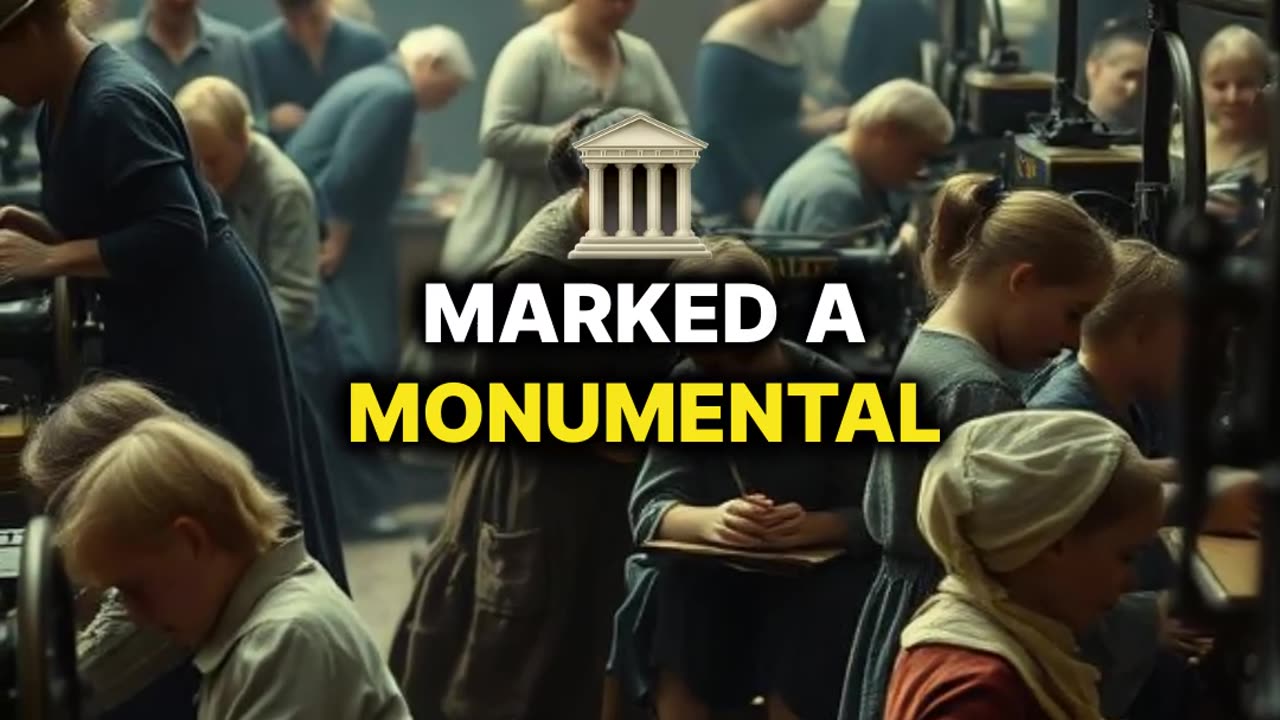Premium Only Content

The Industrial Revolution,
The Industrial Revolution, beginning in Britain in the late 18th century, marked a monumental shift in human history. This era transitioned societies from agrarian economies based on manual labor to industrial powerhouses driven by machines. It was not just a technological change; it was a transformative period for people, communities, and entire nations.
Factories sprang up, particularly in the textile industry, where innovations like the spinning jenny and the power loom revolutionized production. These machines enabled the mass production of textiles, but they also altered the fabric of society. Women and children became the backbone of factory labor, working long hours in often dangerous conditions for meager pay. As they toiled, their stories of hardship and resilience began to unfold.
In response to exploitation, workers organized. Strikes and the formation of labor unions emerged as they fought for rights, better wages, and safer working environments. Their struggles were crucial, laying the groundwork for labor rights that many enjoy today.
Innovation was at the heart of this revolution. Inventors like James Watt improved the steam engine, making it possible to power factories, trains, and ships. This newfound efficiency connected markets and transformed transportation, fostering trade on an unprecedented scale.
The impact of industrialization rippled outward, driving rapid urbanization as people flocked to cities in search of work. This migration created bustling urban centers, but it also led to significant challenges, including overcrowding, poor sanitation, and strained social structures. Families were reshaped as traditional roles evolved in response to the demands of industrial life.
Globally, the Industrial Revolution had far-reaching effects. Colonies provided raw materials for British factories, while the demand for goods opened new trade routes and markets. The interconnectedness of economies began to take shape, setting the stage for globalization.
Ultimately, the Industrial Revolution was a period of profound change, characterized by stories of innovation, struggle, and transformation. The legacy of this era continues to influence our modern world, reminding us of the resilience of those who lived through it and the foundations they built for future generations.
-
 12:40
12:40
Chris From The 740
23 hours ago $0.60 earnedIs The Walther P22 Still Trash? Let's Find Out
8.87K1 -
 1:00:37
1:00:37
Trumpet Daily
20 hours ago $4.27 earnedThe Cause of ‘Natural’ Disasters - Trumpet Daily | Jan. 10, 2025
12.3K11 -
 33:41
33:41
PMG
11 hours ago $0.43 earnedHannah Faulkner and Haile McAnally | OMAHA YR RACE
3.99K3 -
 21:24
21:24
The Based Mother
1 day ago $0.77 earnedThis is not a drill - California is set on self-destruction.
4.37K6 -
 6:06:49
6:06:49
Sgt Wilky Plays
14 hours agoFirefight Friday
51K5 -
 5:03:49
5:03:49
Drew Hernandez
17 hours agoLA MAYOR PUSHED $49 MILL LAFD BUDGET CUT ONE WEEK BEFORE FIRES?
111K68 -
 2:52:04
2:52:04
Nobodies Gaming
12 hours ago $6.45 earnedNobodies Rumble Gaming TEST STREAM 2.0
68.4K3 -
 1:00:36
1:00:36
Talk Nerdy 2 Us
11 hours agoDigital Surveillance, TikTok Shutdowns & The Hackers They Don’t Want You to Know About!
55.5K2 -
 3:08:37
3:08:37
SpartakusLIVE
14 hours agoDelta Force || Tactical, Strategic, HARDCORE
59.7K2 -
 3:32:05
3:32:05
I_Came_With_Fire_Podcast
18 hours agoTRUMP GUILTY Verdict, LA Fires, New American EXPANSIONISM, and Cyber Truck Updates!!
35.8K14